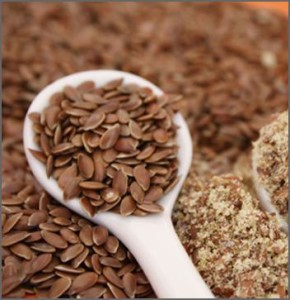
Our Doctor of Pharmacy, Deidra Van Gilder, PharmD covers the hot topic of supplements in our in our 12 week wellness program. Supplements are a hot topic and you may wonder what the professionals in the field recommend on this topic as there is a lot of information to be found on the internet. The below information is from Deidra herself….hope it is helpful to you!
Fish Oil
Fish oil contains two important components: DHA (docosahexaenoic acid) and EPA (eicosapentaenoic acid). Another substance called ALA (alpha-linolenic acid) may be as effective as DHA and EPA although it doesn’t have as much evidence for its use. ALA is the component of flaxseed that is thought to lower cholesterol. Fish oil is typically recommended for people with high triglyceride levels.
Foods that contain Fish Oil: Anchovies, Catfish, Cod, Halibut, Herring, Mackerel, Tuna, Trout,
Salmon, Sardines
Uses:
- There is strong evidence for the use of fish oil to lower triglycerides and increase HDL at doses of 2-4 grams daily. Be aware that it may increase LDL.
- There is evidence to support the use of fish oil 1 gram daily for prevention of recurrent stroke or heart attack in patients with cardiovascular disease.
- There is some evidence for the use of fish oil in rheumatoid arthritis to reduce morning stiffness and joint tenderness. It is the most beneficial when used with anti-inflammatory medications.
Dose: 1 – 4 grams daily divided into twice daily dosing. The fish oil capsules may be stored in the freezer to decrease incidence of fishy burps and aftertaste.
Adverse Effects: fishy aftertaste or fishy burps, heartburn, loose stools, nausea, upset stomach, alterations in glycemic control, increased risk of bleeding
Drug Interactions: warfarin, aspirin, clopidogrel, oral contraceptives
Calcium
Calcium is important for many functions of the body including bone and teeth health. Calcium is most commonly used for treatment and prevention of low calcium levels and osteoporosis.
Foods that contain Calcium: milk, cheese, yogurt, dark green leafy vegetables, and calcium fortified foods or juices
| Recommended Dietary Allowance (RDA) for Calcium | |
| Men age 19-70 | 1000 mg/day |
| Men age 71 & older | 1200 mg/day |
| Women age 19-50 | 1000 mg/day |
| Women age 51 & older | 1200 mg/day |
Dosing: Dosing for calcium supplementation is dependent on calcium intake from dietary sources. The preferred source of calcium is through the diet. The two most commonly used forms of calcium for supplementation are calcium carbonate and calcium citrate. Calcium carbonate (Tums) is well tolerated especially when taken with a meal. It is the calcium supplement of choice in patients with poor kidney function. Calcium citrate (Citracal) may be taken on an empty stomach, but should be avoided in people with poor kidney function. Calcium citrate is the recommended choice if elderly or people taking a PPI (proton pump inhibitor), antacid, or H2 blocker.
The maximum amount of elemental calcium that the body can absorb at a time is about 500 mg. If doses higher than 500 mg are needed, separate the doses by 4 hours.
Adverse Effects: constipation, bloating, stomach upset, gas, kidney stones
Drug Interactions: PPI (omeprazole, esomeprazole), H2-blockers (famotidine, ranitidine), iron supplements, tetracycline antibiotics, quinolone antibiotics, bisphosphonates, phenytoin, and verapamil
Vitamin D
Vitamin D helps the body maintain normal levels of calcium and phosphorus. Vitamin D is available in two forms, ergocalciferol (Vitamin D2) and cholecalciferol (Vitamin D3), both are considered equivalent. Vitamin D can be obtained from brief sun exposure, foods, and can also be found calcium supplements or multivitamins. Since vitamin D helps with calcium absorption, many supplemental products contain both calcium and vitamin D. Vitamin D is commonly used for treatment or prevention of vitamin D deficiency, osteoporosis, and preventing falls. There is also some evidence for the use of Vitamin D3 ointment for controlling skin cell growth in patients with psoriasis not responding to other therapies.
Foods that contain Vitamin D: fish, eggs, fortified milk, cereals, salt water fish, cod liver oil
| Recommended Dietary Allowance (RDA) for Vitamin D | |
| Men & Women age 19-70 | 600 IU/day |
| Men & Women age 71 & older | 800 IU/day |
Dosing: Vitamin D supplemental dosing is dependent on current vitamin levels and intake. Dosing may range from 400 – 1,000 IU daily so it is important to talk to your physician about the proper dosage for you based on your vitamin D level.
Adverse Effects: Generally well tolerated, nausea, high calcium levels, anemia
Drug Interactions: atorvastatin, digoxin, thiazides, verapamil
Flaxseed
Flaxseed or flaxseed oil is a food product that contains ALA (alpha-linolenic acid). Flaxseed has a high content of fiber and may be used for constipation if taken with plenty of water. Flaxseed can reduce total cholesterol and LDL cholesterol, but has no effect on triglycerides.
Dosing: 15-40 grams (~1 tablespoon 2-3 times daily) of freshly ground flaxseed or flaxseed oil daily for high cholesterol levels. Flaxseed may be prepared as ground, partially defatted, oil, or in bread and muffins. Ground flaxseed is typically recommended over the oil as it offers greater benefits than the oil. Freshly ground flaxseed should be kept in an airtight container and stored in the refrigerator up to three months.
Adverse Effects: increased number of bowel movements, bloating, abdominal pain, diarrhea, constipation (if not taken with plenty of water), gas
Drug Interactions: blood pressure lowering medications, medications used to treat diabetes, anticoagulant/antiplatelet medications (warfarin, aspirin, clopidogrel)
References:
Natural Medicines, Food, Herbs & Supplements, Somerville, MA: Therapeutic Research Center;
11 May 2017. < http://naturaldatabase.therapeuticresearch.com/>
National Institutes of Health Office of Dietary Supplements, National Institutes of Health.
Dietary Supplement Fact Sheets. NIH; 2016. <https://ods.od.nih.gov/factsheets/list-all/>
Flaxseed: is it as beneficial as fish oil? Pharmacist’s Letter/Prescriber’s Letter
2009; 25(7):250708.
If you have any other questions about supplements, vitamins, and minerals, don’t hesitate to contact us!
-Kelsey

